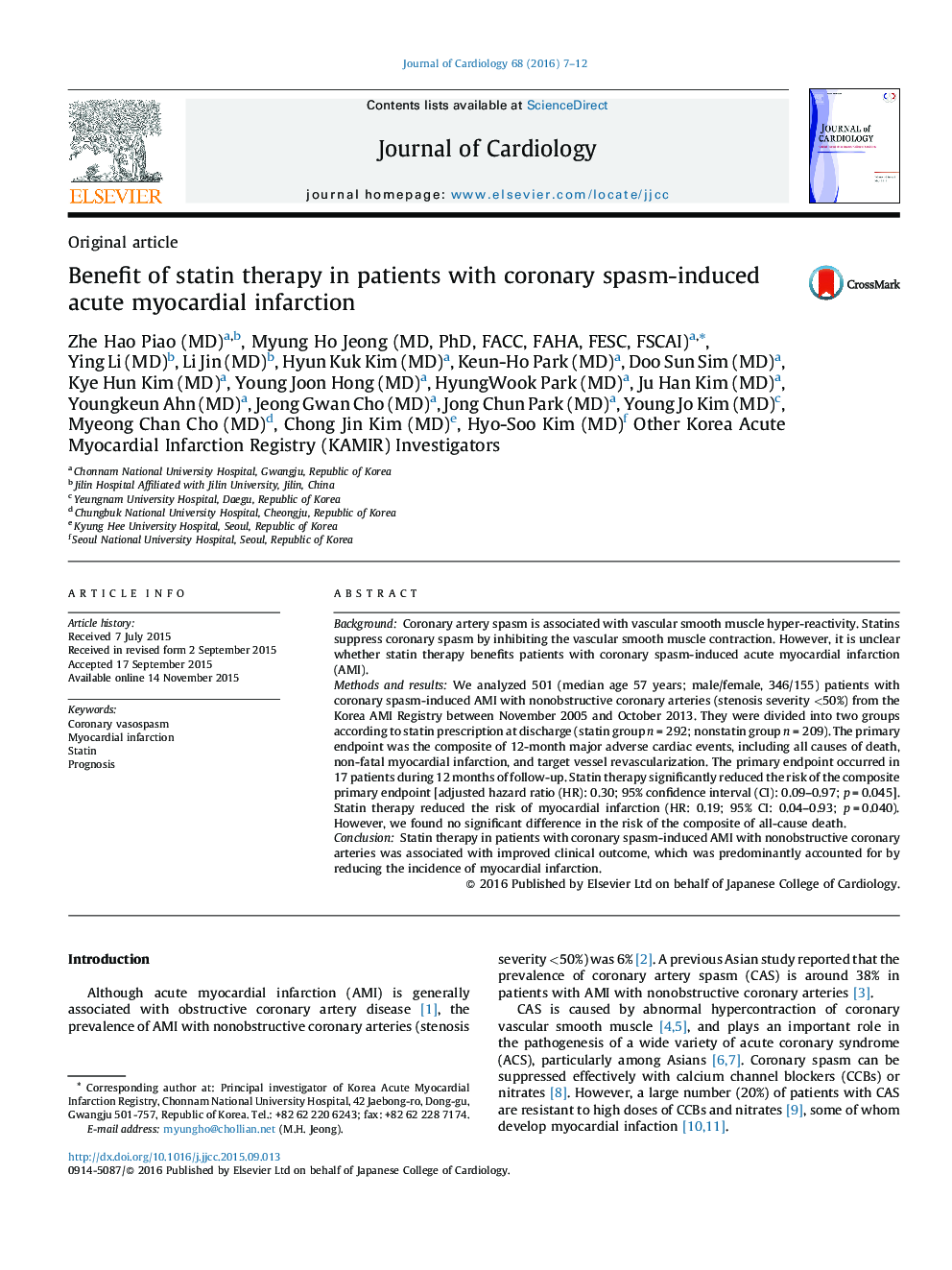| Article ID | Journal | Published Year | Pages | File Type |
|---|---|---|---|---|
| 2962749 | Journal of Cardiology | 2016 | 6 Pages |
BackgroundCoronary artery spasm is associated with vascular smooth muscle hyper-reactivity. Statins suppress coronary spasm by inhibiting the vascular smooth muscle contraction. However, it is unclear whether statin therapy benefits patients with coronary spasm-induced acute myocardial infarction (AMI).Methods and resultsWe analyzed 501 (median age 57 years; male/female, 346/155) patients with coronary spasm-induced AMI with nonobstructive coronary arteries (stenosis severity <50%) from the Korea AMI Registry between November 2005 and October 2013. They were divided into two groups according to statin prescription at discharge (statin group n = 292; nonstatin group n = 209). The primary endpoint was the composite of 12-month major adverse cardiac events, including all causes of death, non-fatal myocardial infarction, and target vessel revascularization. The primary endpoint occurred in 17 patients during 12 months of follow-up. Statin therapy significantly reduced the risk of the composite primary endpoint [adjusted hazard ratio (HR): 0.30; 95% confidence interval (CI): 0.09–0.97; p = 0.045]. Statin therapy reduced the risk of myocardial infarction (HR: 0.19; 95% CI: 0.04–0.93; p = 0.040). However, we found no significant difference in the risk of the composite of all-cause death.ConclusionStatin therapy in patients with coronary spasm-induced AMI with nonobstructive coronary arteries was associated with improved clinical outcome, which was predominantly accounted for by reducing the incidence of myocardial infarction.
